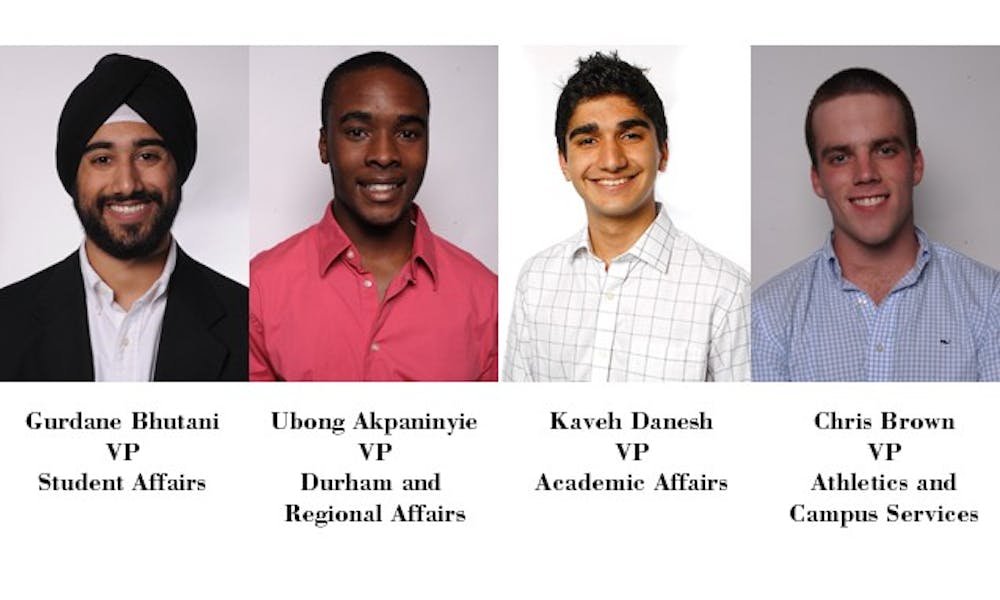The student body elected Duke Student Government representatives for the upcoming year Tuesday.
Among the winners, sophomore Kaveh Danesh will serve as vice president for academic affairs, freshman Gurdane Bhutani will serve as vice president for student affairs, freshman Chris Brown will serve as vice president for athletics and campus services and sophomore Ubong Akpaninyie will serve as vice president for Durham and regional affairs. Akpaninyie’s and Brown’s races were the only contested vice presidential races.
Attorney General Var Shankar, a senior, said voter turnout was 26 percent, which he said was “expected.”
Still, the elections did not come without problems. Shankar said the Office of Student Activities and Facilities made a coding error, which caused ballots to cease function for about three hours Tuesday morning.
After submitting their ballots, many students received a message that the submission failed and that the “choice selected is no longer available.” Because of this error, the deadline to cast ballots was extended to 11 p.m.
“Obviously, many people did not vote again, but I think the vast majority of people who didn’t vote in the morning were able to vote again later in the day,” Shankar said. “I don’t think it affected [voter turnout] significantly.”
Shankar sent an e-mail to undergraduates around 10:43 a.m. Tuesday notifying them that the original ballots were never collected and that students who received the notification had to vote again.
Senior Meg Foran, former attorney general and a current member of the election commission, said voter turnout was slightly higher than the approximately 22 percent turnout last year, adding that the election mishap did not affect the results.
But voter participation was still lower than the 41.5 percent turnout for the March 30 presidential and executive vice presidential races.
“Part of that was the increase in the number of competitive races this year,” Foran said. “The second round of elections is just less exciting than the first round.”
In past years, vice presidents were elected at the same time as the president and executive vice president.
DSG President Awa Nur, a senior, issued an August executive order to combine the vice president and Senate elections. Nur said the change would allow students who run unsuccessful presidential or executive vice presidential campaigns to run for another office.
Only junior Will Passo, an unsuccessful presidential candidate, took advantage of the opportunity, successfully running for a Class of 2011 student affairs Senate seat.
Nur mentioned in her executive order that the election calendar reshuffling might increase voter turnout.
Shankar said increasing voter turnout was just meant to be a “side effect.”
Akpaninyie, who received 50.2 percent of the vote in comparison to the 40.9 percent freshman Gordon Wilson received, said he was happy about his win, but noted that he was concerned about the election mishaps.
“A lot of people who have early morning classes probably voted early in the morning and they were probably irritated and some of them didn’t vote,” Akpaninyie said.
He added that many students may have forgotten to vote because of the five-day election delay. The election of senators and vice presidents was delayed after 13 candidates were first disqualified but later allowed to run.
Brown, who received 52 percent of the vote, said it was frustrating that many of the ballots were not counted. He added that the entire campaign has been frustrating, especially the disqualification of some candidates.
“It’s been a roller coaster the last 18 days,” Brown said. “It seems like the things that should have been prevented kept piling up.”
Get The Chronicle straight to your inbox
Signup for our weekly newsletter. Cancel at any time.

